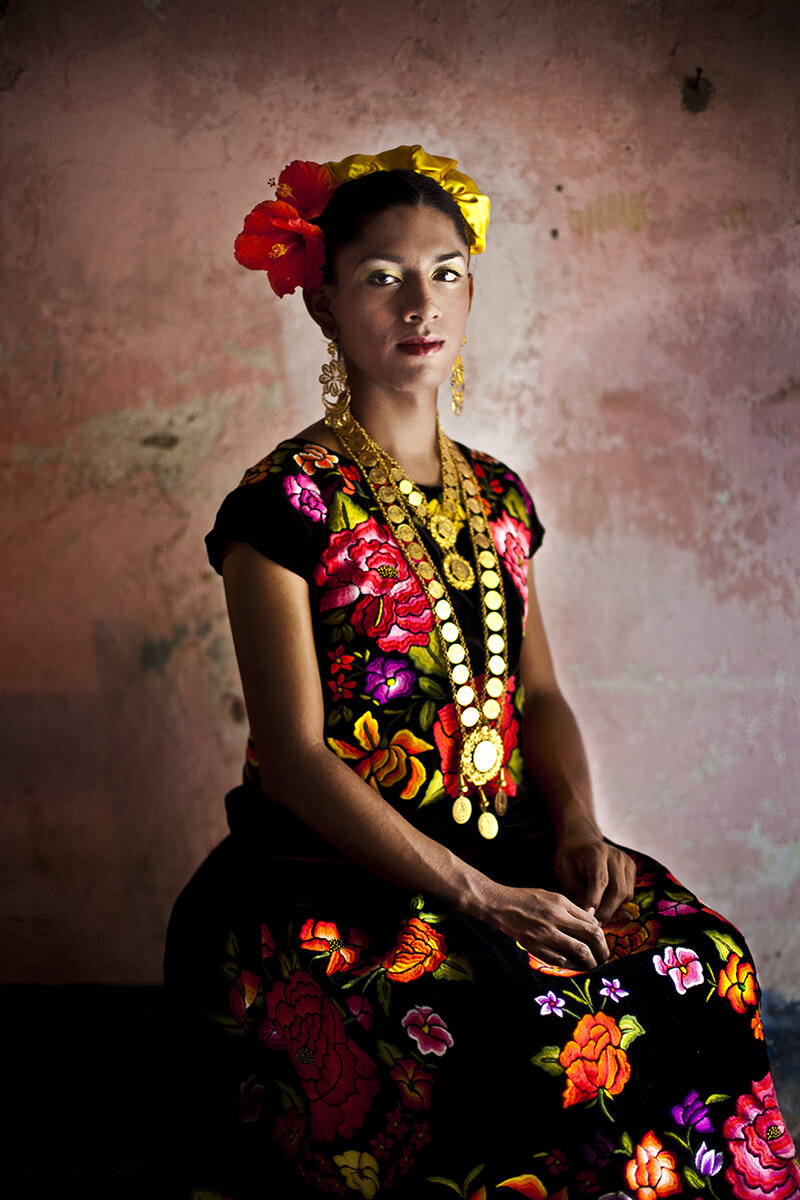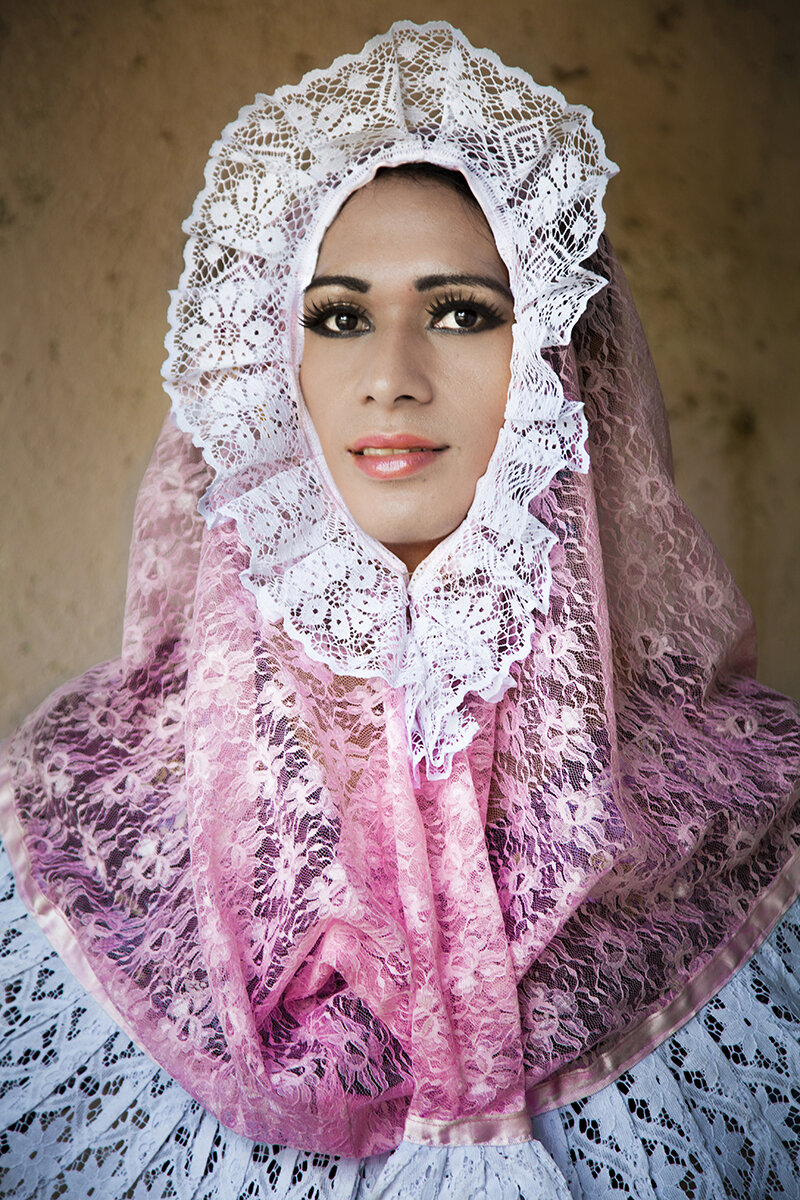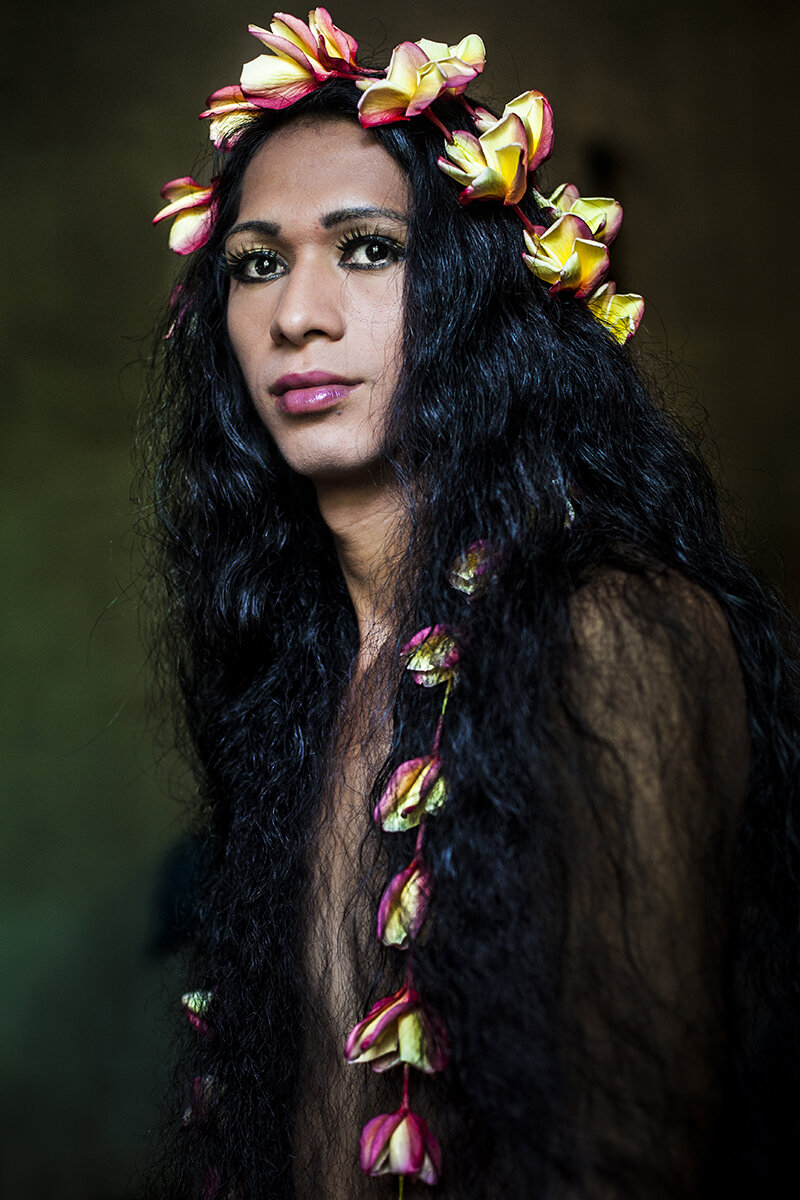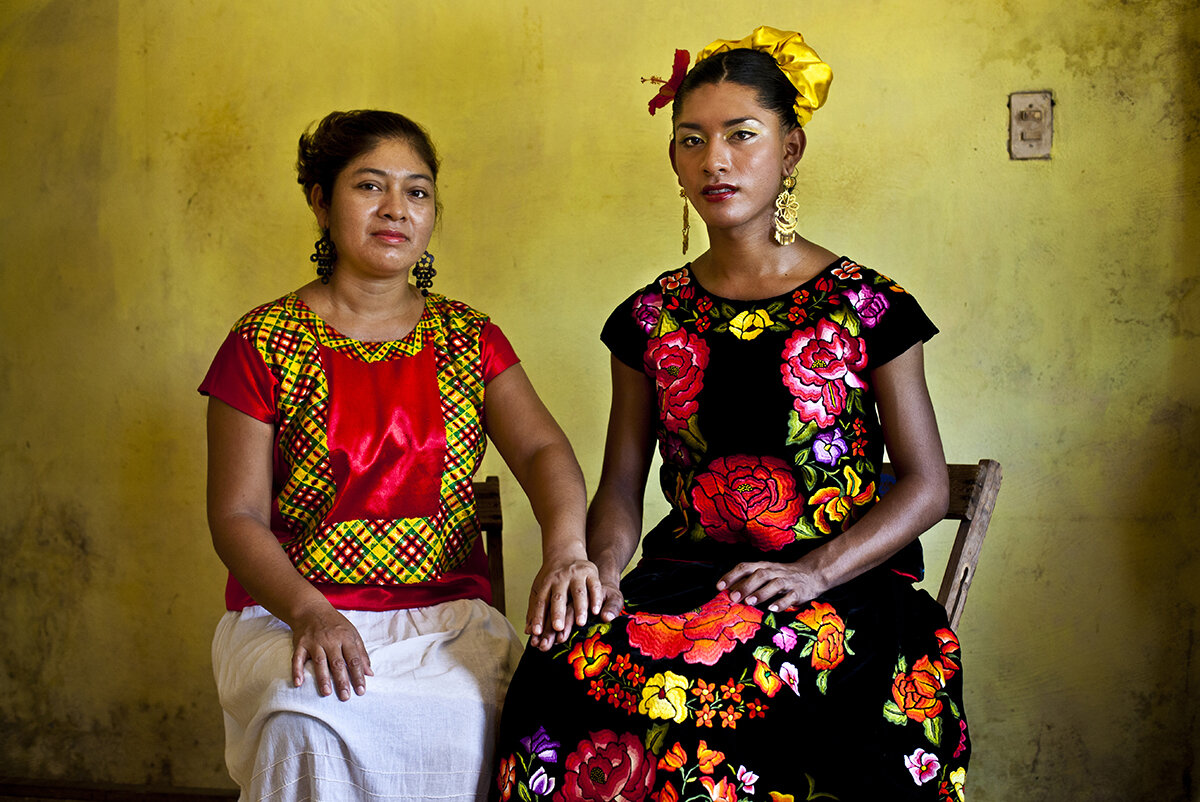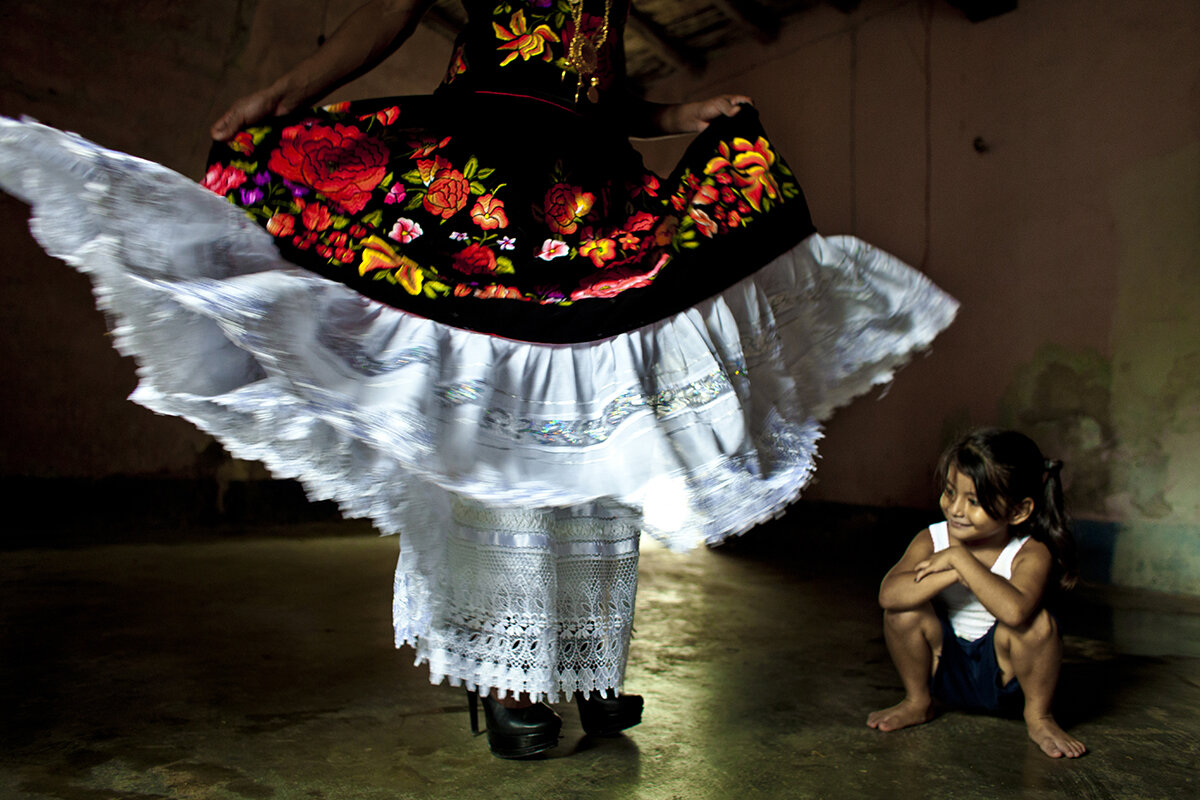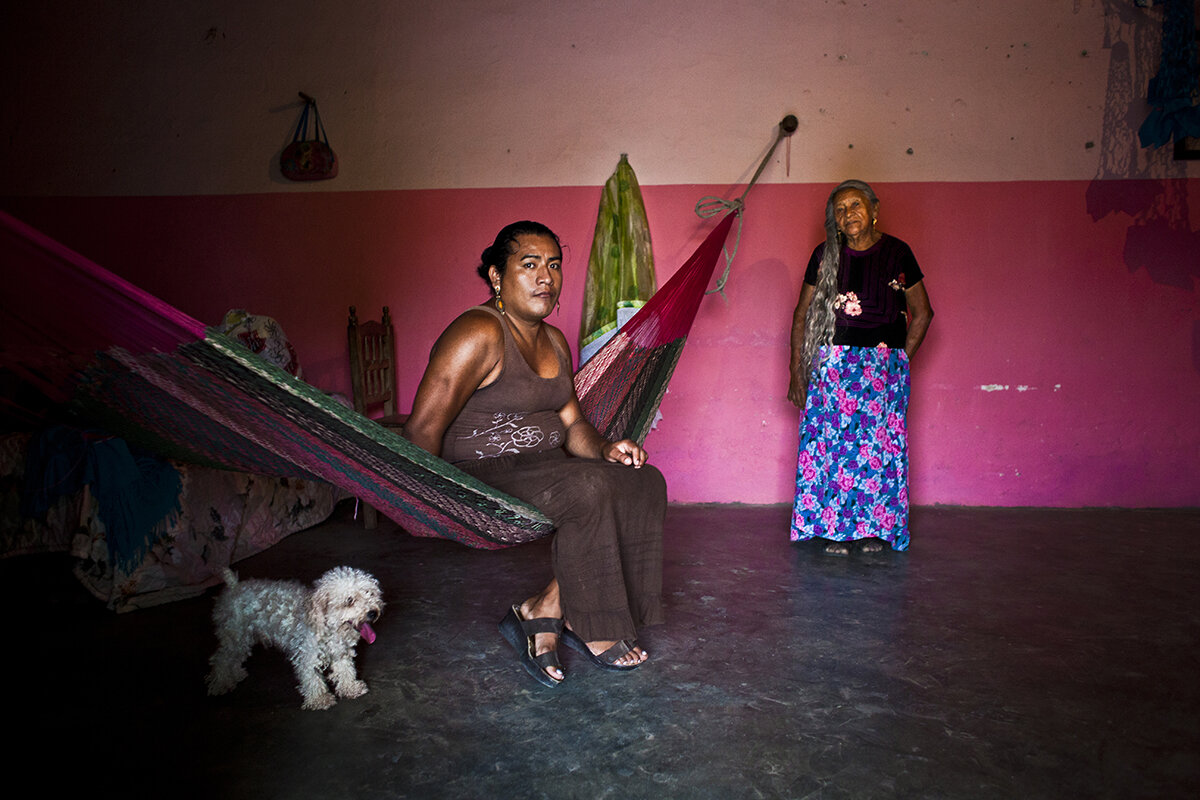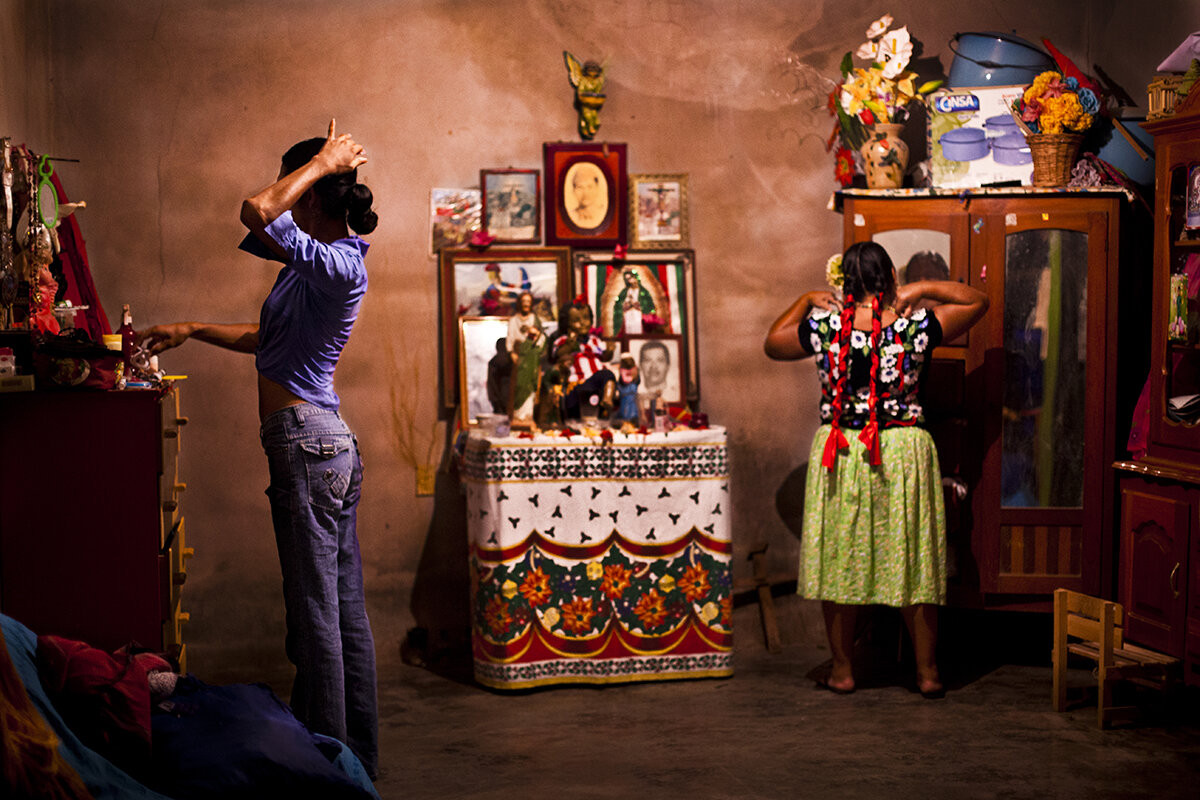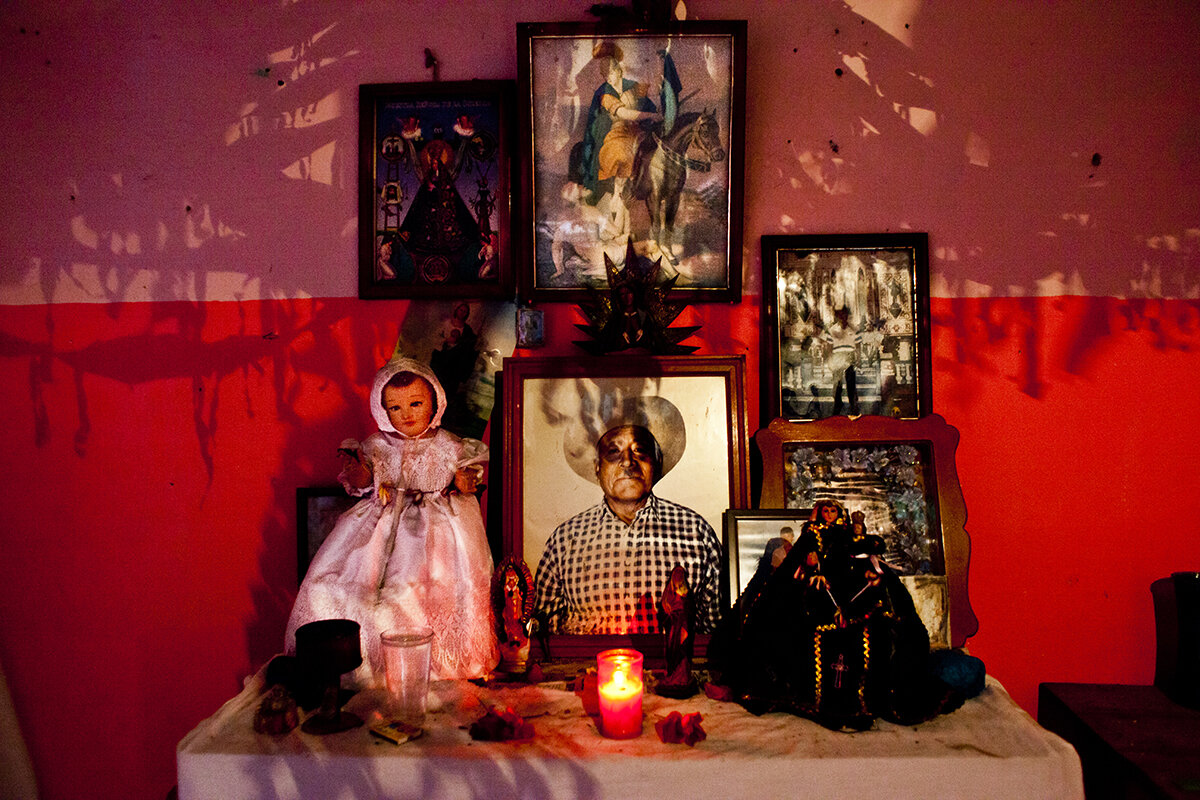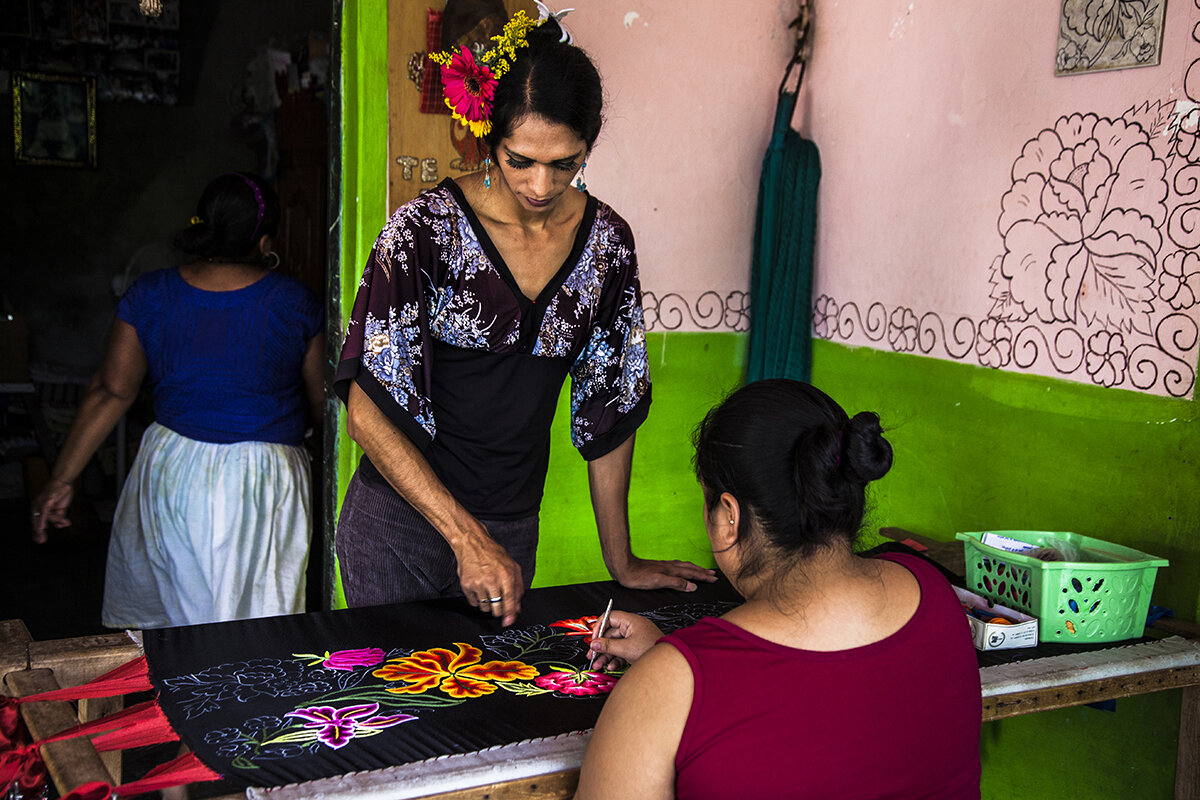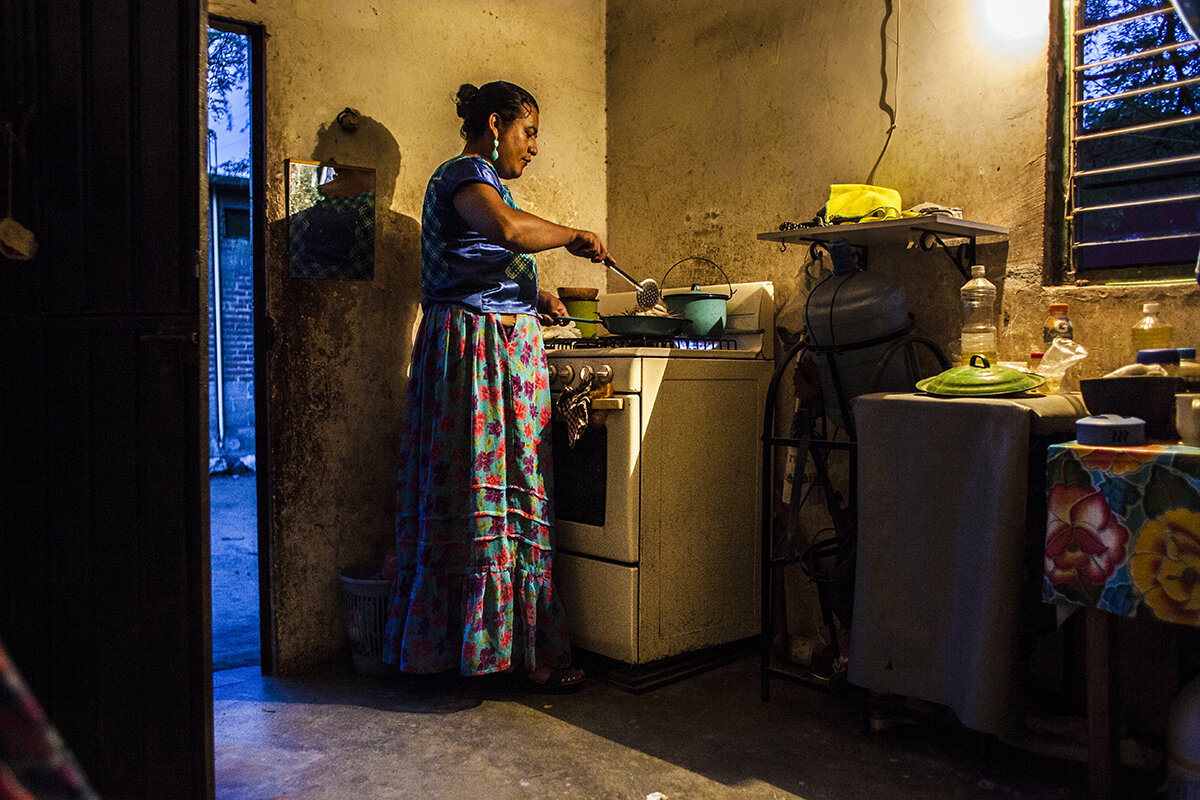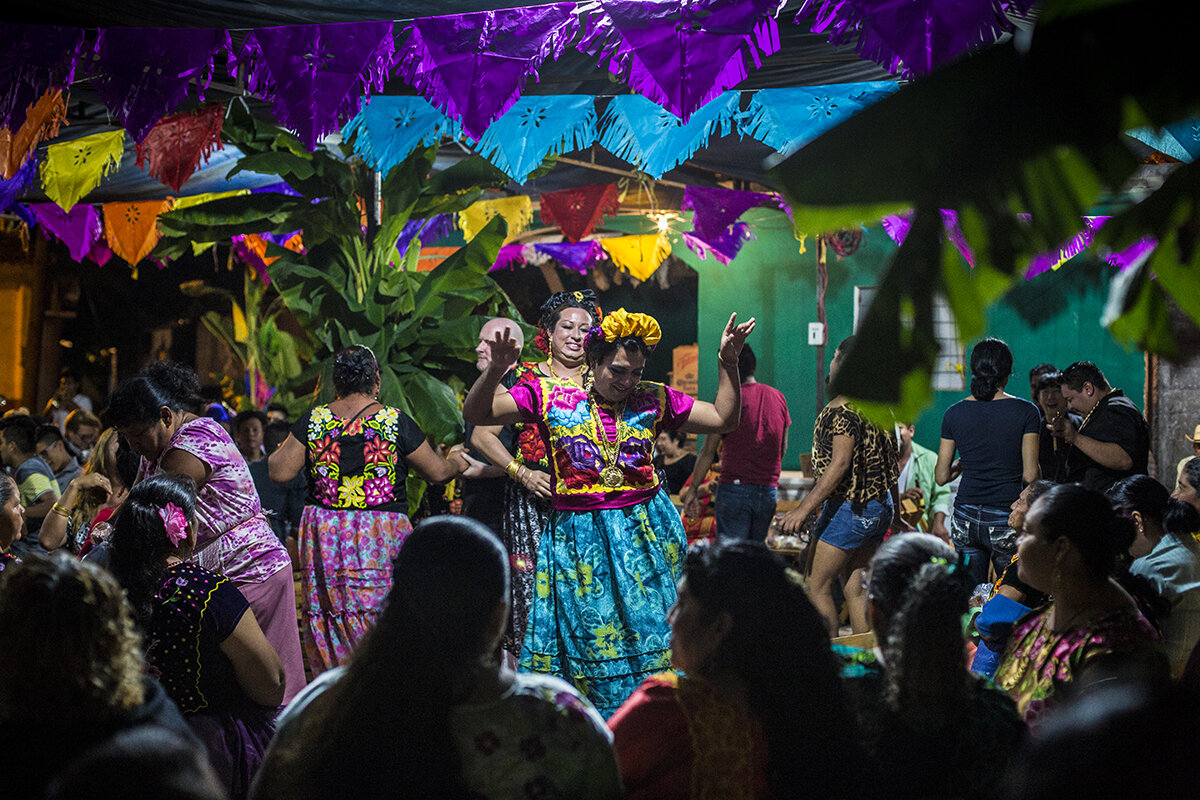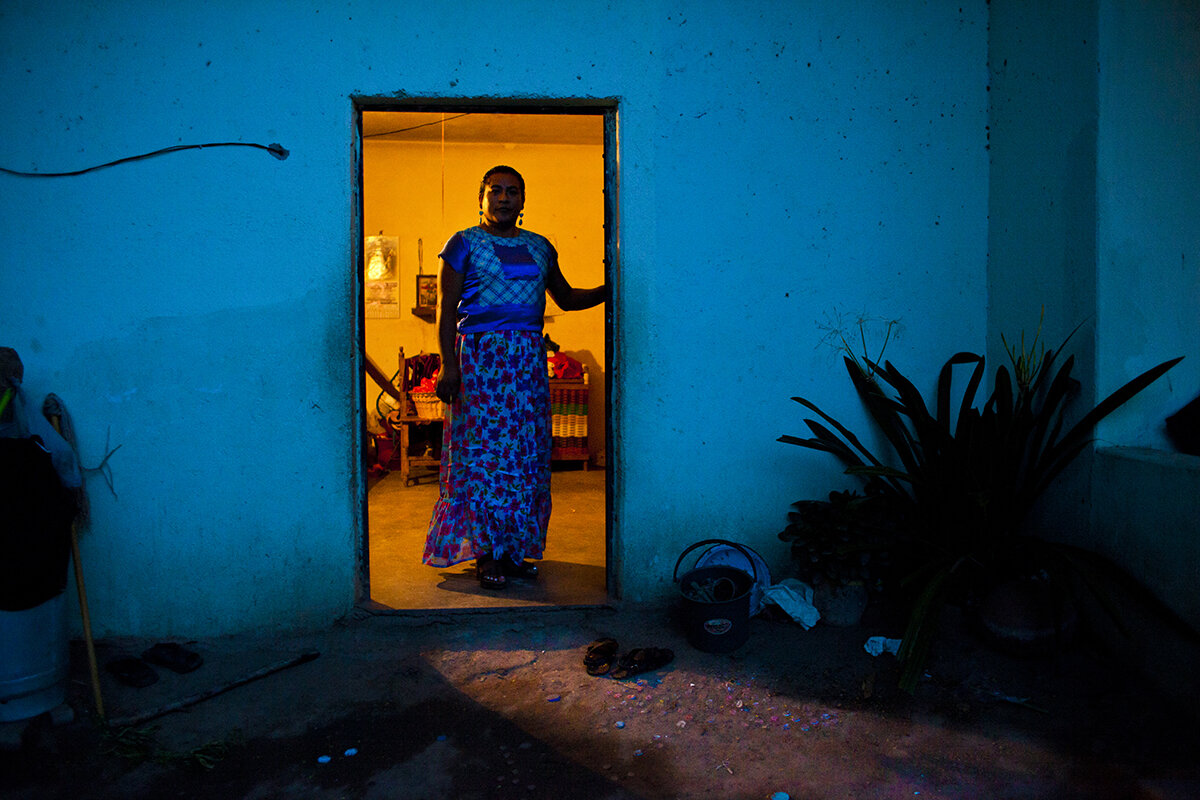Muxes
© Nuria López TorresIn the Isthmus of Tehuantepec, in southern Mexico, and in the heart of the Zapotec culture, the Muxes are considered a third gender within society.
The muxes are integrated into the generic organization of the community and develop socially recognized functions, both in the socio-cultural organization and within the family. The muxes perform some very important occupations for the reaffirmation of Zapotec ethnicity. There is a peculiarly permissive attitude towards effeminacy and transvestism in this part of the state of Oaxaca.
Some Zapotec mothers educate their sons in traditionally feminine roles when they see that their son is behaving effeminately. A muxe son is an economic and emotional support for the woman. They are educated to be good workers and carers for their parents in old age. They will never leave home to form a family and will always remain taking care of their parents.
The figure of the muxes and the acceptance of this third gender is intimately linked to the situation of women in the family and society in the Isthmus of Tehuantepec, as well as the role they play in them. Possessing a certain economic and social independence makes the weight of the feminine universe legitimize the muxes, and their figure within society, however, the clash between tradition and the rapid modernity that permeates the society of the Isthmus, is giving rise to the penetration of marginality and violence, phenomena unknown to date; endangering the traditional model.
click to view the complete set of images in the archive
